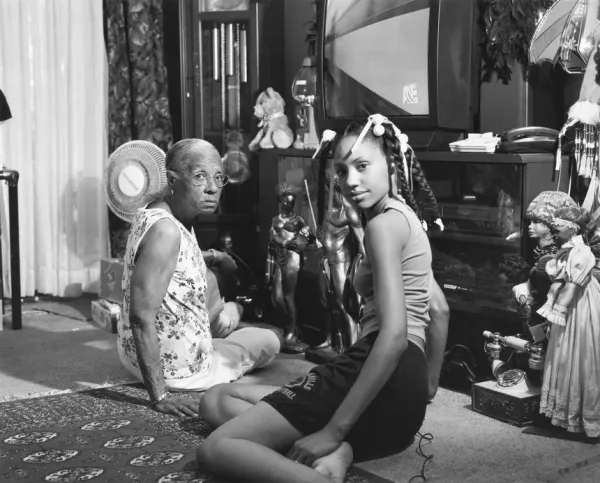10 Questions to Keep You Accountable as an Ally

Being an ally is not about having the right answers. It is about asking the right questions, especially when no one is watching.
If you are a not Black and committed to anti-racism, accountability is one of the most important parts of the journey. It keeps your allyship honest. It stops your actions from becoming empty gestures. And it ensures that your support is grounded in something deeper than optics or momentary outrage.
At theBLKGZE, we believe that allyship is not a badge you wear but a practice you return to again and again. These ten questions are designed to help you reflect, realign, and move forward with clarity. You can revisit them monthly, quarterly, or whenever you feel stuck. Use them privately or in conversation with others. Most of all, use them as a way to stay close to the values you say you hold.
Why Accountability Matters in Allyship
Allyship that is not accountable tends to drift toward performance. It becomes more about appearing supportive than actually doing the work. This kind of performative allyship might feel good in the short term, but it rarely leads to lasting change, for anyone.
Accountability brings your values into focus. It helps you notice your blind spots and invites you to keep growing, even when it is uncomfortable. It does not require you to be perfect. But it does ask you to stay honest.
10 Questions to Keep You Accountable
These questions are not meant to shame you. They are an invitation to reflect with courage and curiosity. There are no right answers. The goal is to become more self-aware, more intentional, and more consistent in how you show up as an ally.
1. Who am I centring in this moment?
When you speak out, share content, or join a conversation about race, ask yourself who you are centring. Is the focus on how you feel, how you appear, or how you are affected? Or are you making space for Black voices, experiences, and needs?
Centring yourself can happen subtly. Being aware of it is the first step toward shifting your posture.
2. What am I doing when nobody is watching?
Allyship is not about public performance. It is about private practice. What do you say when the conversation is hard? What choices do you make when no one is giving you credit? Where are you showing up when it is not trending?
This question helps you check whether your support is rooted in integrity or image.
3. Have I listened more than I’ve spoken?
Listening is an active choice. It means slowing down, resisting the urge to explain, and allowing someone else’s truth to stand on its own.
If you find yourself dominating conversations or always needing to “add your voice,” take a step back. Listening well is one of the most powerful forms of allyship.
4. When was the last time I challenged racism in my own environment?
It is one thing to call out injustice on social media. It is another to speak up in your own circles; with family, colleagues, friends, or in your community.
Allyship means using your influence to disrupt racism close to home. If you have been quiet, this question is a prompt to re-engage.
5. Where have I grown since I first started this work?
Take a moment to notice what has shifted. Maybe you have unlearned something. Maybe you have taken action you would have avoided before. Maybe you have deepened your understanding of systemic injustice.
Acknowledging your growth is important. It reminds you that this journey is ongoing and that every step matters.
6. Where do I still feel defensive?
Defensiveness is a natural response when your worldview or actions are challenged. But it can block growth if left unchecked.
Ask yourself where you still feel fragile, resistant, or reactive. Are there topics or critiques that make you shut down? What is underneath that feeling? Often, there is a lesson waiting on the other side of discomfort.
7. Am I using my power and resources to support Black-led work?
Support is more than reposting. It is about redistributing access, money, time, and attention.
Are you investing in Black-led organisations, creatives, or businesses? Are you mentoring or sponsoring Black colleagues in your workplace? Are you using your privilege to open doors for others?
This question grounds your allyship in material impact, not just intention.
8. Have I apologised when I’ve made mistakes?
You will get things wrong. Everyone does. What matters is how you respond.
If you have caused harm, even unintentionally, have you taken responsibility? Have you apologised without making excuses or expecting forgiveness?
Accountability requires humility. Owning your missteps is part of the work.
9. Am I still learning or have I stopped?
Anti-racism is not something you graduate from. It is a lifelong education. The moment you think you know enough, you begin to stagnate.
Are you still reading, listening, asking questions, and staying open? Are you exploring topics beyond the basics? Are you learning from Black voices regularly?
Let this question re-ignite your curiosity.
10. Is my allyship shaping the way I live or just the way I post?
Social media can be a tool for connection and learning. But it is not the measure of your allyship.
Ask yourself how your values are showing up in your offline life. Have they influenced how you vote, spend, hire, lead, or parent? Are your relationships and routines shaped by a commitment to justice?
True allyship lives in the decisions you make every day.
How We Practice Accountability at theBLKGZE
At theBLKGZE, we hold ourselves accountable to the communities we serve. We reflect regularly on our intentions, impact, and process. We ask for feedback and take it seriously. We examine how our work is shaped by power and how we can do better.
We invite allies to do the same. Not from a place of shame, but from a place of shared responsibility.
Accountability is not a burden. It is an expression of care. It says, “This matters enough to me that I am willing to grow.”
What to Do With Your Answers
You might feel encouraged by your answers to these questions. Or you might feel exposed. Either way, that is a good sign. It means you are engaged.
Here are a few next steps you can take:
- Journal your responses and revisit them in a few months.
- Discuss the questions with other allies and create a space for mutual reflection
- Act on what you discover. Take one step today that moves your allyship forward.
- Repeat the process. Accountability is not a one-off activity.
Final Thoughts: Check In, Then Check Yourself
Being an ally is not about reaching a destination. It is about walking a path with intention, honesty, and care. These questions are meant to help you pause, realign, and stay rooted in your purpose.
You do not have to have it all figured out. You just have to keep showing up.
So ask the questions. Sit with the answers. Then take the next step, with clarity, humility, and the courage to keep going.
Share on social
If this story sparked something in you, share it. Our voices are powerful, and when we lift each other up, we all see a little clearer.





